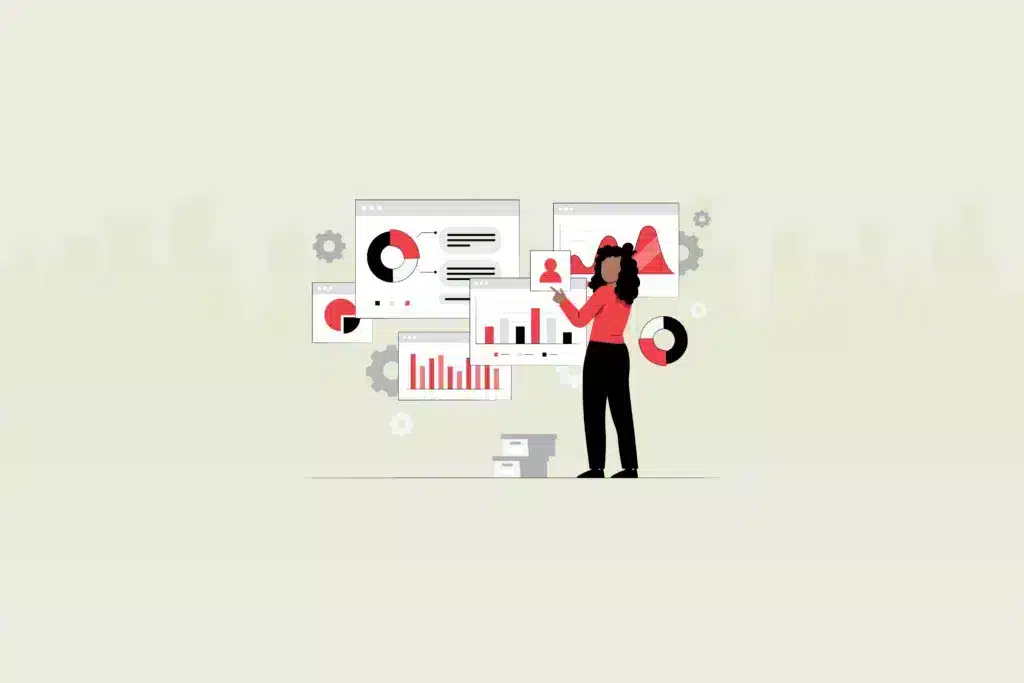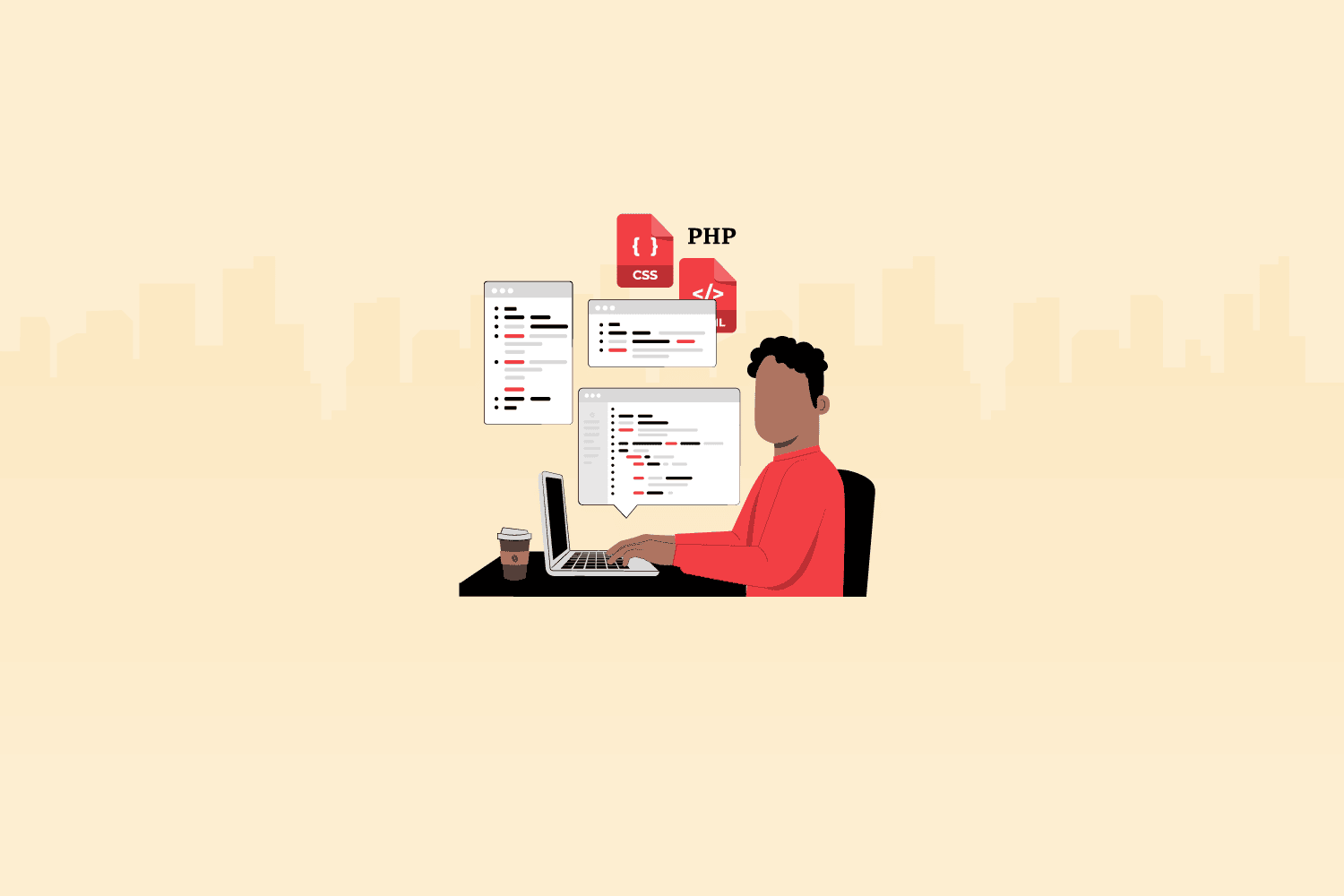In today’s rapidly evolving business landscape, understanding market dynamics and consumer preferences has become paramount for organizations across industries. As a result, the role of a Market Research Analyst has gained significant prominence. Market Research Analysts utilize their expertise in data analytics and consumer insights to provide valuable intelligence, aiding strategic decision-making processes. With the increasing availability of data-driven technologies and advanced analytics tools, the recruiting trend for Market Research Analysts has witnessed a remarkable surge. HR professionals and CXOs recognize the pivotal role these analysts play in shaping business strategies, optimizing product development, and enhancing customer experiences. This article aims to delve into the world of Market Research Analysts, offering insights into the skill sets, qualifications, and interview questions that can help identify exceptional candidates in this field.
Here are the top 50 Market Research Analyst interview questions to ask job applicants:
10 general interview questions for Market Research Analyst
- Can you walk us through your experience in conducting market research projects? What methodologies and tools have you utilized?
- How do you approach the process of designing and executing a market research study from start to finish? Can you provide an example of a successful project you worked on?
- In your opinion, what are the key components of a comprehensive market research plan? How do you prioritize research objectives and align them with business goals?
- How do you ensure the validity and reliability of data collected during a research study? What steps do you take to minimize bias and provide accurate insights?
- Can you discuss your experience in analyzing market data and extracting actionable insights? How do you translate data into meaningful recommendations for stakeholders?
- What strategies do you employ to identify and target relevant consumer segments? How do you ensure that the research findings align with the target audience’s preferences and behaviors?
- Can you share an example of a time when you faced challenges during a market research project and how you overcame them? How do you adapt your approach when faced with unexpected obstacles?
- How do you stay updated with industry trends and changes in consumer behavior? Can you provide examples of how you have applied this knowledge to enhance research methodologies or insights?
- Collaboration and communication are essential in the role of a Market Research Analyst. Can you describe a time when you successfully collaborated with cross-functional teams or presented research findings to stakeholders?
- How do you handle tight deadlines and multiple projects simultaneously? Can you provide an example of a time when you effectively managed your time and delivered quality results under pressure?
5 sample answers to general interview questions for Market Research Analyst
- Can you walk us through your experience in conducting market research projects? What methodologies and tools have you utilized?
Look for: Look for candidates who have experience with a range of research methodologies and tools. They should demonstrate knowledge of both qualitative and quantitative approaches and be able to articulate how they select the appropriate methods for specific research objectives.
Example Answer: “In my previous role, I have conducted various market research projects using both qualitative and quantitative methodologies. For qualitative research, I have utilized techniques such as focus groups and in-depth interviews to gain deep insights into consumer motivations and preferences. When it comes to quantitative research, I am well-versed in survey design, sampling techniques, and data analysis using statistical tools like SPSS and Excel. I believe in employing a mixed-methods approach to obtain a comprehensive understanding of the market and consumer behavior.”
- How do you approach the process of designing and executing a market research study from start to finish? Can you provide an example of a successful project you worked on?
Look for: Look for candidates who can demonstrate a structured and organized approach to designing and executing research studies. They should be able to discuss the various stages of a research project, including problem definition, research design, data collection, analysis, and reporting.
Example Answer: “When I undertake a market research study, I begin by clearly defining the research objectives and the problem we are trying to solve. I then develop a research plan, outlining the methodology, target audience, and data collection techniques. In a recent successful project, I conducted a customer satisfaction study for a retail company. I designed a comprehensive survey, collected data from a representative sample, and conducted in-depth data analysis. The insights obtained from the research led to the identification of key areas for improvement and helped the company enhance their overall customer experience.”
- How do you ensure the validity and reliability of data collected during a research study? What steps do you take to minimize bias and provide accurate insights?
Look for: Look for candidates who have a strong understanding of data quality and demonstrate their ability to mitigate biases in research. They should discuss techniques such as proper sampling, survey design, and data validation methods.
Example Answer: “Ensuring the validity and reliability of data is crucial in market research. To achieve this, I pay close attention to the sampling process, ensuring it represents the target population accurately. I also focus on designing unbiased survey questions and using randomization techniques when applicable. During data analysis, I employ various validation techniques to identify and address any outliers or inconsistencies. Additionally, I consistently document and track any potential sources of bias throughout the research process, such as respondent bias, to ensure accurate insights are derived.”
- Can you discuss your experience in analyzing market data and extracting actionable insights? How do you translate data into meaningful recommendations for stakeholders?
Look for: Look for candidates who can demonstrate their ability to analyze data effectively and derive actionable insights. They should be able to explain their approach to data analysis and how they translate complex data into clear and meaningful recommendations for stakeholders.
Example Answer: “In my previous role, I analyzed extensive market data using various statistical techniques and data visualization tools. I start by cleaning and organizing the data, and then I apply statistical methods to identify patterns, correlations, and trends. I use tools like Excel, R, and Tableau for data analysis and visualization. To ensure the insights are actionable, I relate the findings to the research objectives and business goals. I present the results in a clear and concise manner, providing actionable recommendations that stakeholders can implement to drive informed decision-making.”
- How do you handle tight deadlines and multiple projects simultaneously? Can you provide an example of a time when you effectively managed your time and delivered quality results under pressure?
Look for: Look for candidates who can demonstrate strong organizational and time management skills. They should be able to showcase their ability to prioritize tasks, meet deadlines, and maintain quality standards even in high-pressure situations.
Example Answer: “I thrive in fast-paced environments and have experience handling tight deadlines and multiple projects simultaneously. One example of effectively managing my time and delivering quality results under pressure was during a product launch campaign. I was responsible for conducting market research to understand customer perceptions and preferences. With a tight timeline, I created a detailed project plan, allocated resources efficiently, and set clear milestones. I ensured open and frequent communication with the team and stakeholders, addressing any challenges promptly. By implementing efficient time management strategies, I was able to deliver actionable insights on schedule, enabling the company to make informed decisions for a successful product launch.
10 behavioral interview questions for Market Research Analyst
- Tell me about a time when you had to deal with a challenging client request or difficult stakeholder. How did you handle the situation, and what was the outcome?
- Describe a project where you had to adapt your research methodology or approach midway. How did you identify the need for change, and what steps did you take to ensure the project’s success?
- Share an example of a time when you discovered an error or flaw in data during analysis. How did you identify the issue, and what actions did you take to rectify it and ensure accurate insights?
- Can you recall a situation where you had to present complex research findings to a non-technical audience? How did you ensure the information was understood, and what strategies did you employ to effectively communicate the insights?
- Discuss a time when you faced a tight deadline for a research project. How did you prioritize your tasks and manage your time to deliver the project on schedule without compromising quality?
- Tell me about a time when you had to work collaboratively with a cross-functional team or other departments to complete a research project. How did you ensure effective communication and collaboration to achieve the desired outcomes?
- Describe a situation where you identified an emerging market trend or consumer behavior change that had a significant impact on the business. How did you stay updated and leverage this knowledge to provide strategic insights to your organization?
- Share an example of a research project where you encountered unexpected challenges or roadblocks. How did you overcome these obstacles and ensure the project’s success?
- Discuss a time when you had to manage multiple research projects simultaneously. How did you prioritize your workload, allocate resources effectively, and ensure the timely completion of all projects?
- Tell me about a situation where you had to make a tough decision based on incomplete or conflicting data during a research study. How did you handle the ambiguity, and what approach did you take to mitigate potential risks?
5 sample answers to behavioral interview questions for the Market Research Analyst
- Tell me about a time when you had to deal with a challenging client request or difficult stakeholder. How did you handle the situation, and what was the outcome?
Look for: Look for candidates who demonstrate strong interpersonal and communication skills. They should showcase their ability to handle difficult stakeholders or client requests with professionalism, diplomacy, and effective problem-solving.
Example Answer: “In a previous project, I had a challenging client who continuously changed the research objectives and requested additional analyses throughout the study. To address this situation, I scheduled regular meetings with the client to understand their evolving needs and expectations. I remained flexible and adaptable, redefining the scope and timeline as necessary. By maintaining open lines of communication and actively managing their expectations, I was able to navigate the challenges effectively. The outcome was a satisfied client who appreciated our flexibility and the insights we provided.”
- Describe a project where you had to adapt your research methodology or approach midway. How did you identify the need for change, and what steps did you take to ensure the project’s success?
Look for: Look for candidates who demonstrate flexibility and problem-solving skills. They should showcase their ability to recognize when a research methodology or approach needs adjustment and how they effectively implement changes while ensuring the project’s objectives are met.
Example Answer: “During a market research project, we initially planned to conduct in-person interviews to gather qualitative data. However, due to unexpected circumstances, it became clear that conducting face-to-face interviews would be challenging. To address this, I proactively proposed transitioning to remote interviews using video conferencing tools. I conducted a pilot study to ensure the feasibility and reliability of the new approach. I also adjusted the interview guide and protocols accordingly. By embracing this change, we completed the project while maintaining the integrity of the research objectives.”
- Share an example of a time when you discovered an error or flaw in data during analysis. How did you identify the issue, and what actions did you take to rectify it and ensure accurate insights?
Look for: Look for candidates who demonstrate attention to detail and a proactive approach to quality assurance. They should explain how they identify data errors, take corrective actions, and ensure the accuracy and reliability of research findings.
Example Answer: “In one project, I noticed inconsistencies in the data while conducting data analysis. Upon further investigation, I discovered that there was an error in the data collection process, resulting in inaccurate responses from a subset of participants. To rectify the issue, I immediately reached out to the data collection team to understand the root cause and collaborated with them to implement corrective measures. We re-contacted the affected participants, clarified the errors, and obtained accurate responses. I then re-analyzed the data, ensuring the integrity of the insights before finalizing the research findings.”
- Can you recall a situation where you had to present complex research findings to a non-technical audience? How did you ensure the information was understood, and what strategies did you employ to effectively communicate the insights?
Look for: Look for candidates who possess strong communication skills and the ability to simplify complex information for non-technical stakeholders. They should demonstrate their capability to tailor their communication style, utilize visual aids, and provide clear and concise explanations.
Example Answer: “In a recent project, I presented intricate market research findings to the senior leadership team, which consisted of non-technical stakeholders. To ensure the information was understood, I crafted a visually appealing and concise presentation, focusing on key insights and actionable recommendations. I used charts, graphs, and infographics to simplify complex data and enhance comprehension. Additionally, I prepared a detailed summary document that provided additional context and explanations. By employing these strategies, I successfully conveyed the research findings in a manner that resonated with the audience, enabling them to make informed decisions.”
- Discuss a time when you faced a tight deadline for a research project. How did you prioritize your tasks and manage your time to deliver the project on schedule without compromising quality?
Look for: Look for candidates who demonstrate strong time management skills and the ability to handle pressure while maintaining quality standards. They should explain their approach to prioritization, and organization, and how they manage deadlines effectively.
Example Answer: “In a time-sensitive research project, I faced a tight deadline due to unforeseen delays in data collection. To manage the situation, I immediately reassessed the project timeline and identified critical tasks that needed to be prioritized. I communicated with the team to ensure everyone was aware of the revised timeline and the urgency of meeting the deadline. I allocated additional resources to expedite data processing and analysis without compromising quality. By effectively managing my time, delegating tasks where appropriate, and maintaining open lines of communication, I successfully delivered the project on schedule while ensuring the accuracy and completeness of the research results.”
15 personality interview questions for the Market Research Analyst
- How do you stay motivated and focused when working on a long-term research project?
- Describe a time when you had to work independently and take ownership of a research project. How did you manage your time and ensure progress?
- How do you handle ambiguity and uncertainty in research projects? Can you provide an example of a situation where you had to make decisions with limited information?
- Share a time when you had to work with a diverse team or collaborate with individuals from different backgrounds. How did you adapt your communication and work style to foster effective teamwork?
- As a Market Research Analyst, attention to detail is crucial. How do you ensure accuracy and precision in your work? Can you provide an example of a time when your attention to detail made a significant impact?
- Describe a situation where you had to think creatively to solve a complex research problem. What innovative approaches did you employ, and what was the outcome?
- How do you handle feedback and constructive criticism? Can you share an example of a time when you received feedback on your research findings or methodologies, and how you incorporated it to improve your work?
- In the field of market research, continuous learning is essential. How do you stay updated with industry trends and emerging research methodologies?
- Share an example of a time when you had to influence or persuade others to adopt a specific research approach or methodology. How did you effectively communicate your ideas and gain buy-in from stakeholders?
- Market Research Analysts often work with sensitive or confidential data. How do you maintain confidentiality and ensure data privacy in your research projects?
- Describe a situation where you had to juggle multiple priorities or projects simultaneously. How did you stay organized and ensure the timely completion of all tasks?
- As a Market Research Analyst, you may encounter resistance or skepticism from stakeholders regarding research findings or recommendations. How do you handle such situations and gain the trust of skeptical individuals?
- Discuss a time when you faced a setback or failure in a research project. How did you handle it, and what did you learn from the experience?
- Market Research Analysts need to be curious and have a strong desire to uncover insights. How do you cultivate and maintain your curiosity in your work?
- Share an example of a time when you had to present research findings to a large audience or executive team. How did you prepare for the presentation, and how did you engage and communicate effectively with the audience?
5 sample answers to personality interview questions for the Market Research Analyst
- How do you stay motivated and focused when working on a long-term research project?
Look for: Look for candidates who demonstrate self-motivation, perseverance, and the ability to maintain focus and productivity over an extended period. They should have strategies for staying motivated and organized throughout the research process.
Example Answer: “To stay motivated and focused during long-term research projects, I break the project into smaller milestones and set specific goals for each stage. This allows me to track my progress and maintain a sense of accomplishment throughout the process. Additionally, I prioritize regular breaks and incorporate time for self-care and rejuvenation to prevent burnout. By balancing focused work with adequate rest, I can sustain my motivation and ensure the quality and accuracy of my research.”
- How do you handle ambiguity and uncertainty in research projects? Can you provide an example of a situation where you had to make decisions with limited information?
Look for: Look for candidates who are comfortable with ambiguity and can adapt their approach in situations with limited information. They should demonstrate their ability to make informed decisions based on available data and effectively communicate their reasoning.
Example Answer: “When faced with ambiguity and limited information in research projects, I embrace a systematic approach to fill the knowledge gaps. In one particular project, I had to assess a new market segment with little existing data. To overcome this challenge, I conducted exploratory interviews with industry experts and leveraged secondary research to gather initial insights. While the information was limited, I applied analytical thinking to connect the available dots and formulated a research plan to collect primary data. By adapting my approach and relying on my research skills, I successfully generated meaningful insights despite the initial ambiguity.”
- How do you handle feedback and constructive criticism? Can you share an example of a time when you received feedback on your research findings or methodologies and how you incorporated it to improve your work?
Look for: Look for candidates who demonstrate openness to feedback, humility, and a willingness to learn and grow. They should be able to show how they handle constructive criticism and use it as an opportunity to enhance their research methodologies and outcomes.
Example Answer: “I value feedback as a means of professional growth and improvement. In a previous research project, a stakeholder provided feedback on my research methodology, suggesting that additional data points could strengthen the validity of the findings. Rather than taking it personally, I appreciated the input and engaged in a constructive conversation to understand their perspective. I conducted further analysis to incorporate the suggested data points, and it indeed added robustness to the research. This experience reinforced my belief in the value of feedback and its ability to enhance the quality of my work.”
- As a Market Research Analyst, you may encounter resistance or skepticism from stakeholders regarding research findings or recommendations. How do you handle such situations and gain the trust of skeptical individuals?
Look for: Look for candidates who can navigate and manage stakeholder relationships effectively. They should showcase their ability to communicate research findings, address concerns, and build credibility and trust with skeptical stakeholders.
Example Answer: “When faced with skepticism from stakeholders, I approach the situation with empathy and active listening. I take the time to understand their concerns and perspectives, allowing me to tailor my communication to address their specific doubts. I present the research findings in a transparent and evidence-based manner, highlighting the robustness of the methodologies employed. Additionally, I encourage open dialogue, welcome questions, and provide additional supporting data or case studies when necessary. By demonstrating my expertise, fostering trust, and being receptive to feedback, I have been able to win over skeptical stakeholders and gain their confidence in the research outcomes.”
- Describe a situation where you had to work with a diverse team or collaborate with individuals from different backgrounds. How did you adapt your communication and work style to foster effective teamwork?
Look for: Look for candidates who demonstrate strong interpersonal skills and the ability to work collaboratively in diverse team settings. They should showcase their adaptability, effective communication, and their efforts to promote inclusivity and collaboration.
Example Answer: “In a recent research project, I had the opportunity to work with a diverse team consisting of members from different departments and backgrounds. To foster effective teamwork, I recognized the importance of clear and open communication. I made an effort to actively listen to each team member’s ideas and opinions, encouraging an inclusive environment where everyone felt valued and respected. I adapted my communication style to accommodate different perspectives, ensuring that information was conveyed effectively to all team members. By embracing diversity, promoting open dialogue, and leveraging the unique strengths of each team member, we fostered a collaborative and productive environment that led to successful project outcomes.”
When should you use skill assessments in your hiring process for Market Research Analyst?
Skill assessments should be used in the hiring process for Market Research Analysts to effectively evaluate the candidates’ abilities and ensure they possess the necessary skills for the role. Assessments are important because they provide objective and concrete evidence of a candidate’s competence, going beyond resumes and interviews. They help hiring managers make informed decisions and identify the most qualified individuals for the position.
To assess the skills of Market Research Analyst candidates, various assessments can be utilized. These assessments can include:
- Data analysis tests
These tests evaluate a candidate’s ability to analyze and interpret data, which is a crucial skill for Market Research Analysts. Candidates may be presented with datasets and asked to derive meaningful insights or draw conclusions based on the provided information.
- Market research case studies
Case studies allow candidates to demonstrate their research skills and problem-solving abilities in a realistic scenario. Candidates can be given a hypothetical market research problem and be asked to design a research plan, gather relevant data, and present their findings.
- Statistical knowledge assessments
Since statistical analysis is a fundamental aspect of market research, assessments that gauge a candidate’s understanding of statistical concepts and their ability to apply statistical methods can be beneficial. These assessments can cover topics such as sampling, hypothesis testing, regression analysis, and data visualization.
By incorporating these skill assessments into the hiring process, employers can effectively assess a candidate’s proficiency in essential areas of market research and make well-informed decisions that lead to hiring the most qualified individuals for the role of a Market Research Analyst.
Use our interview questions and skill tests to hire talented Market Research Analyst
Unlock the potential of your hiring process with Testlify’s comprehensive skill assessments and interview questions specifically designed for market research analysts.
Our extensive test library offers a wide range of assessments, including cognitive function, personality, situational judgment, programming, and more. By leveraging these assessments, you can objectively evaluate candidates’ abilities, ensuring you shortlist the most talented individuals efficiently.
To further enhance your hiring process, we invite you to book a free 30-minute live demo. Our expert team will guide you through the platform, showcasing relevant skill tests tailored to your hiring needs. With our support, you can streamline candidate selection, saving valuable time and resources.
Ready to find the perfect fit for your market research analyst role? Testlify provides the tools you need to make informed hiring decisions. Explore our skill assessments and interview questions today to uncover exceptional talent for your team.








